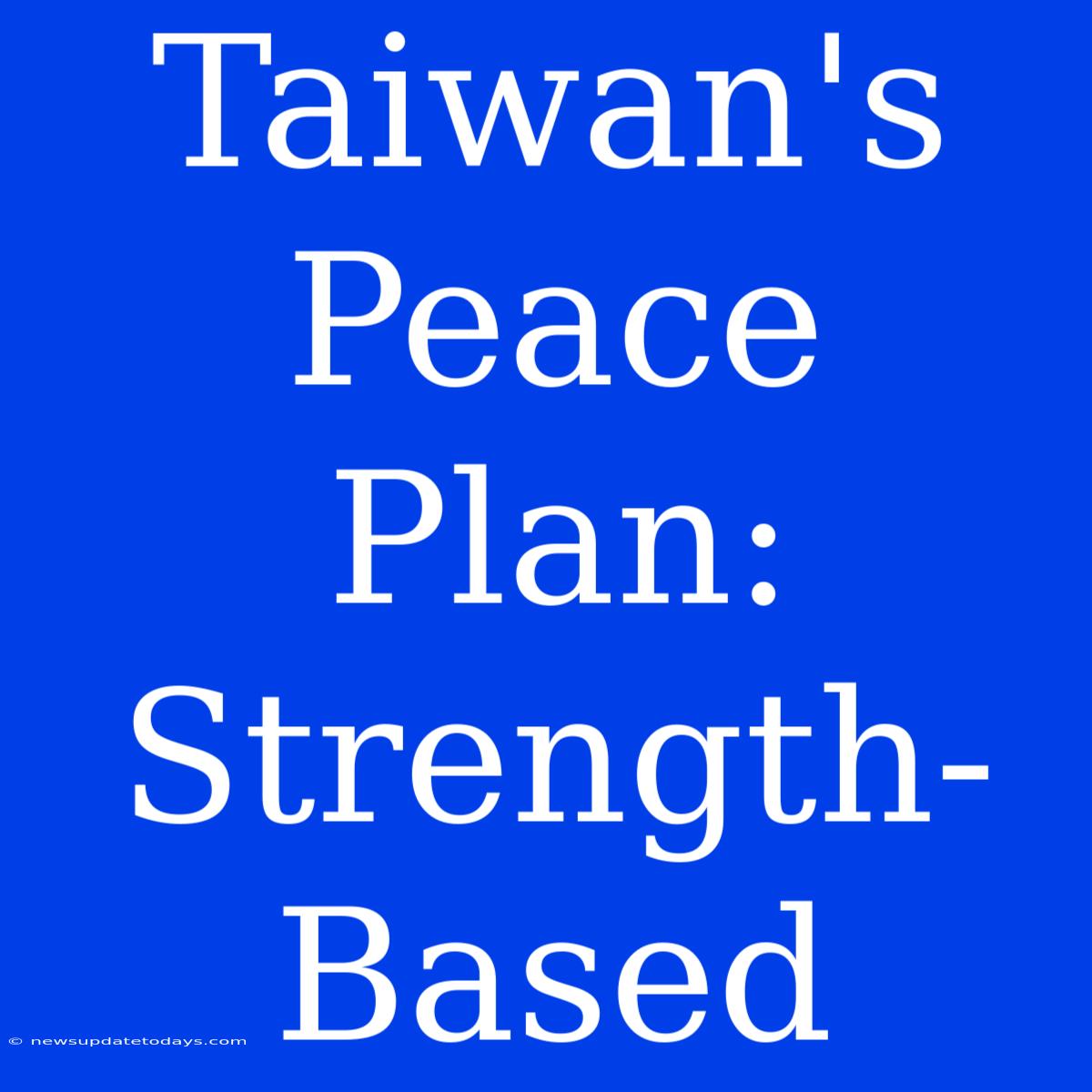Taiwan's Peace Plan: A Strength-Based Approach
Taiwan's recent unveiling of a "peace plan" for resolving the cross-strait conflict has sparked significant international debate. While details remain scarce, the underlying principle – a strength-based approach – offers a compelling alternative to narratives focused solely on appeasement or confrontation. This article explores the potential strengths and weaknesses of this strategy, analyzing its implications for regional stability and international relations.
What is a Strength-Based Peace Plan?
Unlike plans predicated on concessions or solely relying on external intervention, a strength-based approach emphasizes Taiwan's inherent strengths as a foundation for peace. This includes:
-
Economic Prowess: Taiwan's robust economy, a crucial player in global semiconductor manufacturing and technology, provides considerable leverage in negotiations. Its economic interdependence with China presents both a challenge and an opportunity. A strength-based approach leverages this economic power to incentivize peaceful resolutions.
-
Technological Advancement: Taiwan's advanced technological capabilities, particularly in semiconductors and information technology, are vital to global supply chains. This technological advantage strengthens its position and offers a powerful bargaining chip in negotiations, deterring aggressive actions.
-
Democratic Values and International Support: Taiwan's vibrant democracy and commitment to human rights resonate with many democratic nations. Cultivating and strengthening these international relationships offers significant diplomatic and political support, bolstering Taiwan's position against coercion.
-
Military Preparedness: While a strength-based approach doesn't solely rely on military might, a credible defense capability is crucial for deterrence. Investing in asymmetric warfare capabilities and strengthening alliances further enhances Taiwan's defensive posture and its negotiating power.
Strengths of the Approach
A strength-based peace plan offers several advantages:
-
Enhanced Credibility: It projects confidence and resolve, making Taiwan a more credible negotiating partner. This contrasts with appeasement strategies that may be perceived as weakness, potentially escalating tensions.
-
Proactive Deterrence: By highlighting its strengths, Taiwan actively discourages aggression. The costs of conflict for China are clearly demonstrated, potentially reducing the incentive for military action.
-
Sustainable Peace: A strength-based approach fosters a more sustainable peace, not relying on temporary concessions but on Taiwan's long-term resilience and capabilities.
Challenges and Potential Weaknesses
Despite its advantages, a strength-based approach faces challenges:
-
Balancing Strength and Diplomacy: It requires a delicate balance. While showcasing strength is crucial, it must be coupled with diplomatic engagement to avoid escalating tensions or being perceived as provocative.
-
Managing Asymmetric Warfare: Taiwan's defense strategy needs to account for China's significant military advantage. Focusing on asymmetric warfare and enhancing international partnerships becomes critical.
-
International Support: Sustaining strong international support requires continued engagement and diplomacy. This needs to go beyond mere statements of support and translate into tangible political and economic assistance.
Conclusion: A Path Towards Sustainable Peace?
Taiwan's strength-based peace plan represents a significant shift in approach. While it faces challenges, it offers a potential pathway to a more sustainable and credible peace. By leveraging its economic, technological, and democratic strengths, along with a robust defense strategy and strong international partnerships, Taiwan aims to deter aggression and secure its future. The success of this approach hinges on a careful balancing act between demonstrating resolve and fostering diplomatic engagement, ensuring that strength serves as a foundation for peace, not a catalyst for conflict. Further details of the plan will be crucial in assessing its viability and long-term impact on regional stability.

